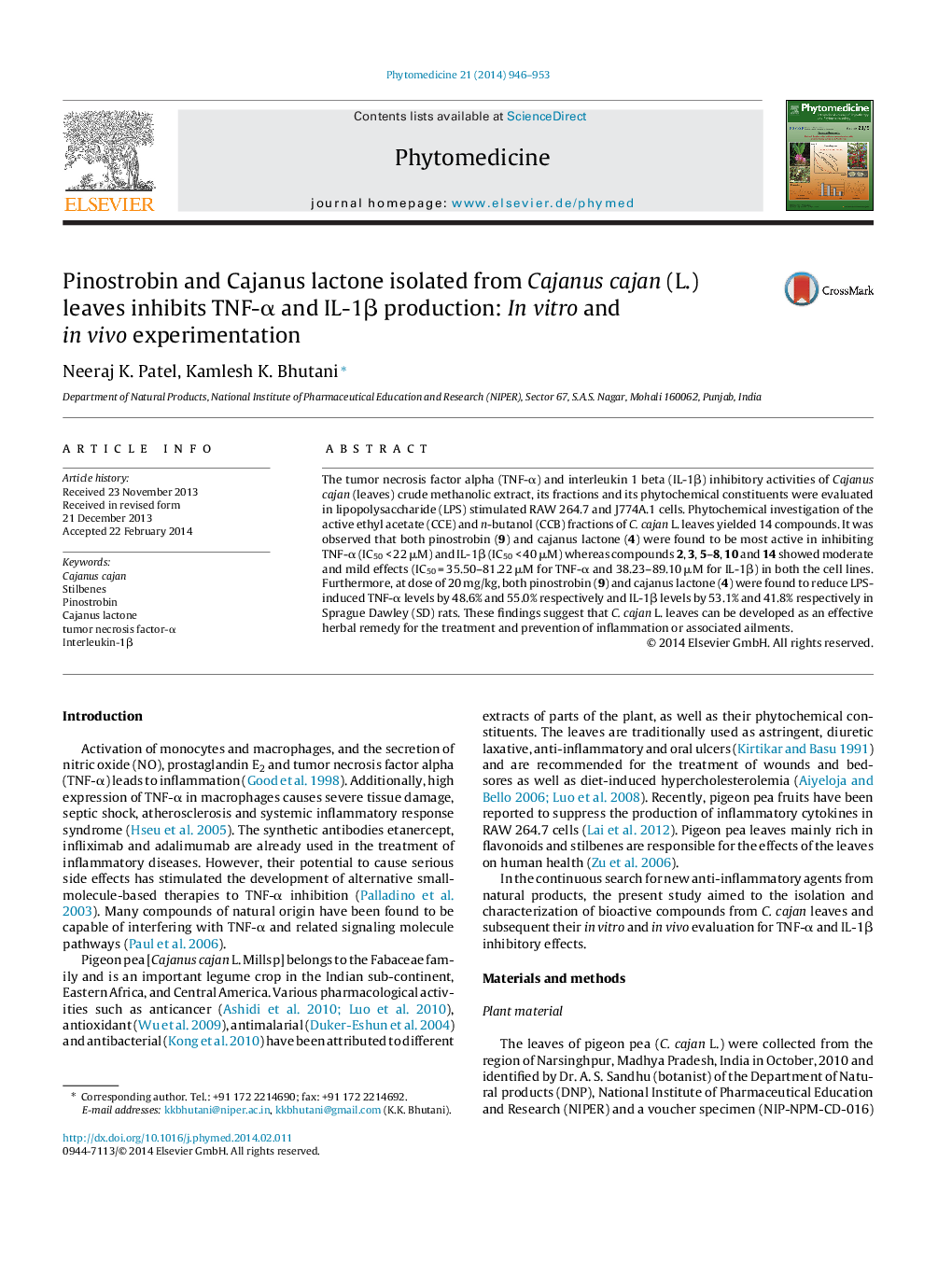| Article ID | Journal | Published Year | Pages | File Type |
|---|---|---|---|---|
| 2496420 | Phytomedicine | 2014 | 8 Pages |
The tumor necrosis factor alpha (TNF-α) and interleukin 1 beta (IL-1β) inhibitory activities of Cajanus cajan (leaves) crude methanolic extract, its fractions and its phytochemical constituents were evaluated in lipopolysaccharide (LPS) stimulated RAW 264.7 and J774A.1 cells. Phytochemical investigation of the active ethyl acetate (CCE) and n-butanol (CCB) fractions of C. cajan L. leaves yielded 14 compounds. It was observed that both pinostrobin (9) and cajanus lactone (4) were found to be most active in inhibiting TNF-α (IC50 < 22 μM) and IL-1β (IC50 < 40 μM) whereas compounds 2, 3, 5–8, 10 and 14 showed moderate and mild effects (IC50 = 35.50–81.22 μM for TNF-α and 38.23–89.10 μM for IL-1β) in both the cell lines. Furthermore, at dose of 20 mg/kg, both pinostrobin (9) and cajanus lactone (4) were found to reduce LPS-induced TNF-α levels by 48.6% and 55.0% respectively and IL-1β levels by 53.1% and 41.8% respectively in Sprague Dawley (SD) rats. These findings suggest that C. cajan L. leaves can be developed as an effective herbal remedy for the treatment and prevention of inflammation or associated ailments.
Graphical abstractFigure optionsDownload full-size imageDownload high-quality image (84 K)Download as PowerPoint slide
